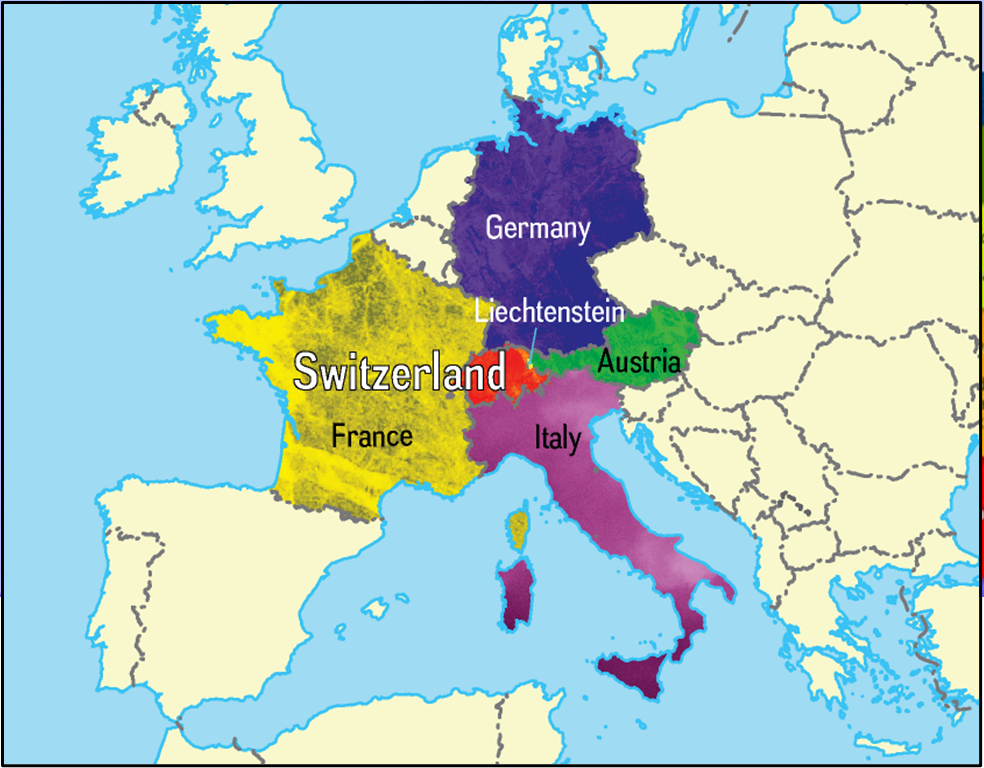A TRUSTED MEDIATOR
Syllabus:
GS-II: Governance, Constitution, Polity, Social Justice and International Relations
Why in the news?
Switzerland hosts Ukraine peace talks, showcasing its diplomatic prowess amid rising tensions between Russia and Ukraine.
source:reddiff
About Switzerland’s Role as a Peacemaker:
1. Switzerland’s Upcoming Peace Conference on Ukraine
● The ongoing war in Ukraine has shattered the peace of Europe, highlighting the need for dialogue and a peaceful resolution.
● Goal:
○ Facilitate discussions between all parties involved in the conflict, fostering a space for open communication and potential compromise.
○ Over 120 countries have expressed interest in attending, including G7 members, EU representatives, and nations like Brazil, China, India, and South Africa.
● Process: There will be no grand pronouncements or a final declaration at the end. Instead, the focus will be on open dialogue and establishing a foundation for future negotiations.
● This “shock absorber” approach aims to de-escalate tensions and create a platform for finding common ground.
● Neutrality and Discretion: Switzerland’s long-standing policy of neutrality, dating back to the 19th century, allows it to act as a neutral ground for warring parties.
● This neutrality fosters trust and confidence that discussions will be held confidentially, without taking sides.
● Proven Track Record: Switzerland has a rich history of facilitating peace talks and offering “good offices” to international conflicts. Here are some notable examples:
○ Cold War Thaw: In 1985, Geneva hosted the historic meeting between US President Ronald Reagan and Soviet leader Mikhail Gorbachev, marking a turning point in the Cold War.
○ Bosnian Peace Negotiations: Switzerland played a crucial role in the Bosnian peace talks that culminated in the Dayton Agreement in 1995, ending the Bosnian War.
○ Middle East Peace Process: Geneva has served as a neutral venue for various Middle East peace talks, providing a platform for dialogue between conflicting parties.
○ 2021 Biden-Putin Summit: Switzerland facilitated the first face-to-face meeting between US President Joe Biden and Russian President Vladimir Putin since Biden took office.
● Strong Work Ethic and Efficiency: Swiss diplomacy is renowned for its dedication, professionalism, and meticulous approach.
● Swiss diplomats are known for their tireless efforts in facilitating communication and finding solutions, even in the most challenging situations.
Understanding United Nations Charter:
Understanding Why Russia Invaded Ukraine:
|
About Switzerland’s Longstanding Commitment to Peace:
● Foundation of Swiss Democracy:
○ Rule-based Order:
○ Switzerland’s strong democratic tradition emphasises the importance of resolving disputes through established rules and international law.
○ This aligns well with the principles of peaceful conflict resolution.
○ Respect for Human Rights:
○ Switzerland is a strong advocate for human rights on the global stage.
○ The violation of human rights in Ukraine has been a key concern, and the upcoming conference aims to address these issues and uphold international humanitarian law.
○ Educated Citizenry:
○ Switzerland boasts a highly literate population with a strong emphasis on education.
○ This fosters an informed citizenry engaged in public discourse and supportive of peaceful solutions.
○ Direct Democracy:
○ The Swiss political system allows citizens to participate directly in decision-making through regular referendums.
○ This fosters a sense of ownership and promotes collaboration in finding solutions to complex issues.
● Global Impact:
○ Economic Success: Despite its small size, Switzerland is a global powerhouse, home to some of the world’s most renowned brands.
○ is economic success can be attributed, in part, to the Swiss emphasis on collaboration, consensus building, and a strong work ethic.
○ Model for Peaceful Coexistence: Switzerland’s long history of neutrality and its success in fostering dialogue serve as a model for peaceful coexistence in a diverse world.
● Future of the Ukraine Conflict:
○ The upcoming conference is a crucial first step in bringing all parties to the table and establishing a framework for future negotiations.
○ While a final solution to the war might not be achieved in June, the conference paves the way for back-channel diplomacy and gradual progress towards peace.
Challenges:
● Unforeseen developments leading up to June: The situation on the ground in Ukraine is constantly evolving, making it difficult to predict the atmosphere or outcomes of the conference.
● Uncertain participation from key players: While many countries have expressed interest, crucial players like Russia have indicated they might not attend.
● China’s stance also remains unclear, creating a potential imbalance at the conference.
● Potential division between North and South nations: The war in Ukraine has exacerbated existing geopolitical tensions.
● The conference might face challenges in bridging these divides and fostering a consensus for peace.
Way Forward:
- Switzerland should sustain its diplomatic efforts, leveraging its reputation as a trusted mediator.
- Encourage ongoing dialogue between Russia and Ukraine, facilitating negotiations to resolve the conflict peacefully.
- Maintain open channels of communication between all stakeholders involved.
- Foster mutual trust-building measures to create a conducive environment for constructive dialogue.
- Advocate for the implementation of confidence-building measures to ensure lasting peace in the region.
Conclusion:
Switzerland’s long standing reputation as a trusted mediator in international conflicts was reaffirmed by its initiative to facilitate peace talks between Russia and Ukraine. Despite challenges, its diplomatic efforts exemplify the importance of dialogue and negotiation in resolving complex geopolitical disputes.
Source:
https://indianexpress.com/article/explained/switzerland-peace-conference-russia-ukraine-war-9266880/
Mains Practice Question:
“Discuss the role of Switzerland as a mediator in international conflicts, with a focus on its recent initiative to facilitate peace talks between Russia and Ukraine. Evaluate the effectiveness of Switzerland’s diplomatic efforts in resolving complex geopolitical disputes.”




